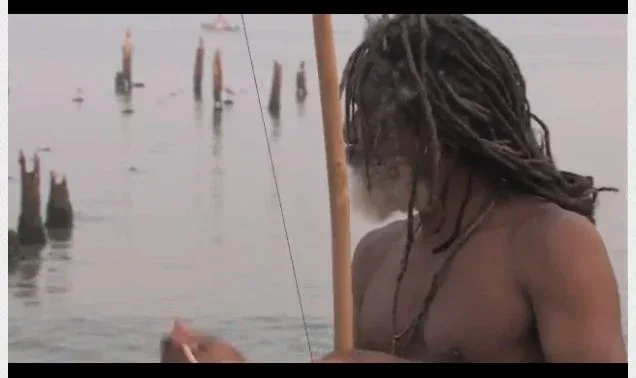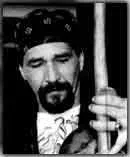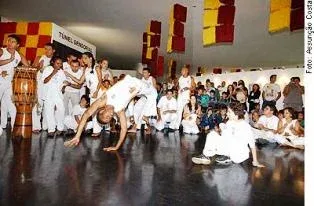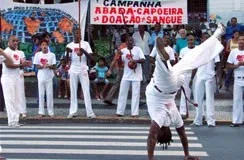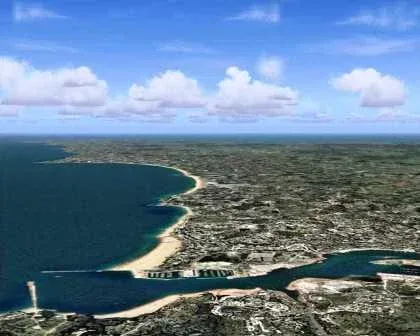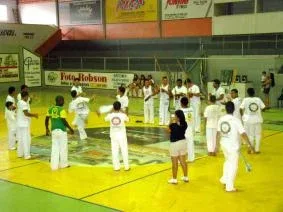Angolan Roots of Capoeira: Angariação de fundos para finalizar produção
O filme Raízes angolanas da capoeira documenta a busca das origens da capoeira em Angola por um mestre de Capoeira e seus amigos.
Está em fase de pós-produção e a arrecadar fundos para a finalização. O projeto necessita de US $ 32.000 para terminar o filme.
Angolan Roots of Capoeira
Raising funds to finish post production of our documentary film
{youtube}Fwqw_SDiN3U{/youtube}
Hi, I am Cobra Mansa, teacher and “master” of the Afro-Brazilian martial art, Capoeira. Pairing up with my friend Matthias Assunção, a historian from Essex University, we are working to realise our common dream to find out more about the African roots of Capoeira.
After an initial research trip to Angola we raised funds and returned to make a documentary film. We filmed amazing Angolan combat games and dances and their encounters with Capoeira.
Angolan Engolo players share with us the legendary African dance fight which many Capoeiristas consider to be an ancestor of Capoeira.
For us all it is a great joy and great privilege to make this film with its rich meetings and great themes of Capoeira, Angola and Slavery.
We now need $ 32.000 to finish the documentary film.
We are asking the global Capoeira community and everyone interested in the common heritage of Africa and the Americas, to join our project, to contribute and to help finish the film.
This will enable us to share with you our meetings with amazing Engolistas, Capoeiristas and many more wonderful characters who enrich the film.
Contribute whatever you can. Every small contribution helps. You can also assist making this film by spreading the word about this project. Thank you! Axé!
Background
As a Capoeirista I was always told that Capoeira comes from Angola. Going to Angola I followed not only the real traces of movements and musical instruments related to Capoeira but was also confronted with the past of my people. I was retracing the steps of our Angolan ancestors who were taken to Brazil as slaves.
The film is the core outcome of a larger research project (“The Angolan Roots of Capoeira”) based at the History Department of the University of Essex. The research project has established a large database from which publications are being produced.
Our film is a dialogue between traditions that have not been in direct contact for more than a century. This exchange is generating new insights about the relations between combat games of the African Diaspora.
What we have done so far
Our project was funded by our own funds, the University of Essex and a major grant from the British Arts and Humanities Research Council (AHRC), which allowed us to successfully complete two lengthy research and filming trips to Angola (2010, 2011) and one to Brazil (2010) and to start post-production of the film (2012).
- In Angola we filmed our meetings and exchanges with practitioners of various combat games and dances. We also filmed with people playing string instruments similar to the Berimbau played at Capoeira Rodas in Brazil. We documented the daily life and rituals of the family that introduced us to Engolo players. Through their eyes the social contexts of the combat games, music, lyrics and dances come to life. One of these filmed rituals is the female initiation known as Efiko, which provides an important context for the playing of combat games in Angola.
- In Brazil we filmed with Capoeira masters who shared their knowledge of the foundations and traditions of their art.
- We have archived, transcribed, translated and edited over 140 hours of footage and audio recordings.
- We now have a rough cut which needs further editing.
What we need the money for
The money we raise will go towards paying our editors to produce the final cut, paying for the sound mix, the on-line edit, a graphic designer, music rights and copyright fees for graphic material we want to use. To share our findings and meetings with as wide an audience as possible we need to sub-title the film very carefully with respect to the Angolan languages, Portuguese and English. Last, but not least we need to pay for the duplication, packaging and shipping of the DVDs to you, our supporters. Any additional money raised will be used to take the film back for screenings with the Angolan and Brazilian communities whose energies make this beautiful project.
To complete outstanding post-production work will require four months, counted from the end of the successful fund-raising campaign.
We expect to complete the film and launch it in July 2013.
The team
Cobra Mansa (Cinésio Feliciano Peçanha, graduated mestre in 1984) has been performing and teaching capoeira for the last thirty years. He is the founder of the International Capoeira Angola Foundation, based in Washington, DC, with affiliated groups in Brazil, the US, Asia, Africa and Europe. Cobra Mansa has researched the movements, music, lyrics and instruments of capoeira for many years. He is a well-known and highly-respected teacher of capoeira and has given many workshops and talks across the world. He worked as a consultant for the capoeira documentary films Mandinga in Manhattan, Fio na Navalha and Capoeiragem na Bahia, and performed as a leading musician on capoeira CDs.
Matthias Röhrig Assunção is a reader in Latin American History at the University of Essex specialising in the history of Brazil, and popular culture. His last book, Capoeira. The history of an Afro-Brazilian martial art (Routledge, 2005) provides a synthesis of the history of capoeira, and underpins the current research project. He also wrote and co-directed the documentary film Verses and Cudgels. Stick Playing in the Afro-Brazilian Culture of the Paraíba Valley (Rio de Janeiro, Brazil) (LABHOI & Essex, 2009).
Richard Pakleppa is an independent filmmaker from Namibia. Since 1990 he has made films incorporating oral history and story telling in Namibia, South Africa and Angola. Some of his films are: Those Glowing Eyes, a story of land theft and restitution at the end of colonial rule; Ndamona, a film about conflict and reconciliation after a long liberation struggle; Angola, saudades from the one who loves you a documentary about Angola emerging after 30 years of war; 3 1/2 Lives of Philip Wetu, a drama; Land, Fire and Water about San communities in southern Angola; and Taste of Rain (2012), an emotional drama set in the vast light filled spaces of the Namibian desert.
Christine Dettmann is an ethnomusicologist and Capoeirista who has previously worked with Brazilian musicians in Lisbon. As the research assistant of the AHRC-funded project ‘The Angolan Roots of Capoeira’ based at Essex University, she is particularly interested in the traditional music and musical instruments of Angola as well as their possible transatlantic links to Brazil.
Mariana Candido, is a specialist of Angolan history at Princeton University and a consultant of the project. The research for her forthcoming book on the history of Benguela (Cambridge University Press, 2013) has provided many insights for the team.
Catherine Meyburgh is an editor based in Johannesburg, South Africa. Her work on documentaries, short films and feature films includes The Guguletu Seven, Portrait of a Young Man Drowning, Gugu & Andile, Heartlines, Sophiatown. She has worked with artist William Kentridge on his films, opera and theatre projects since 1998. In television she has edited the drama series Yizo Yizo, Zero Tolerance, Soul City. She has also directed documentaries, including Alan Paton’s Beloved Country, Kentridge & Dumas in Conversation, Madiba, A Hero for All Seasons. Her work with video installations has been exhibited in Moma (New York), The Louve (Paris), and Museum of Modern Art (Tokyo).


